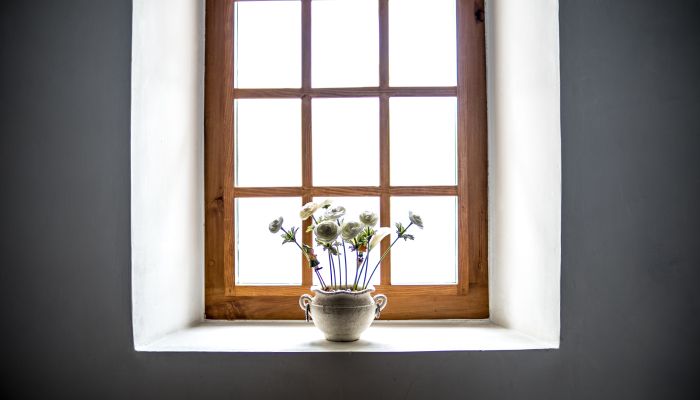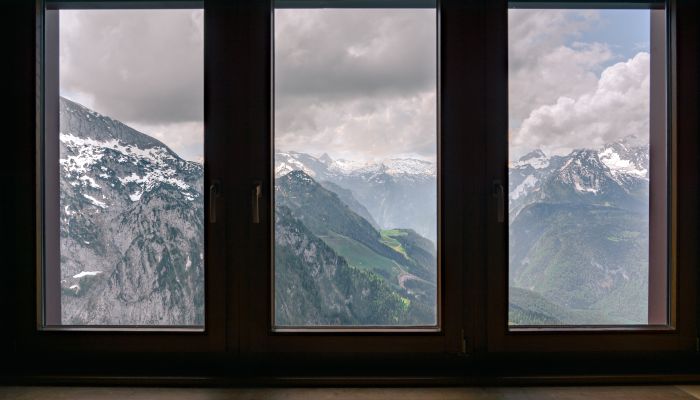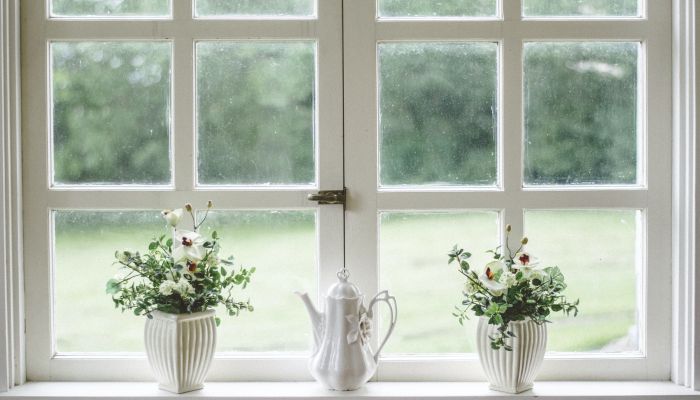Triple Glazing: Advantages and Disadvantages
Triple Glazing: Advantages and Disadvantages
Step in and open up to the clear world of triple glazing. We will navigate through the advantages and disadvantages of triple glazing, and this blog will outline them for you and showcase them to understand how to make your home peaceful, energy efficient and thermally efficient.
We will also run through the drawbacks you may stumble across that can fog your decision. However in this blog we will be continuing to be crystal clear on both the advantages and disadvantages, so we can help you to make a level headed decision about upgrading your home.
Understanding Glazing
What is Glazing?
“Glazing” is the process of installing glass units into windows or doors. “Glazing” can also refer to the glass units themselves. The main purpose of glazing is to allow natural light to flood into indoor spaces while still providing a barrier between the inside spaces and the elements outside. This involves the installation of panes of glass into doors or windows to create a protective, insulation barrier for your home.
Glazing can come in different forms like single glazing, double glazing and triple glazed units. Single glazing is a single layer of glass. Double glazing is two layers of glass separated by a gap of air or inert gas such as argon. Triple glazed units are the same concept as double glazing but with three layers of glass. The additional layers in double and triple glazing provide you with enhanced insulation that reduces heat loss and increases energy efficiency.
The choices of glazing can impact your building or homes energy efficiency levels, insulation property and the sound proofing levels of your home. There are different types of glazing you can choose and these different types of glazing can be chosen depending on whether you are looking to suit the glazing to various different climates, architectural designs and energy efficiency requirements. The type of glazing that you choose is an important factor to consider to optimise the balance in your home between natural light, thermal comfort and your home's energy efficiency.
Double vs Triple Glazing
The choice between double glazing units and triple glazing units refers to the number of layers in the glass unit. Double glazed windows have 2 layers of glass, with inert argon gas sandwiched in between them. Whereas triple glazed windows have the same concept of double glazed windows but with an extra pane of glass added in. Each of these options have different benefits and different drawbacks. The following are some brief comparisons of these two different types of glazing:
Double glazing
- Insulation: double glazing has two layers of glass, with a sealed gap sandwiched in between. The gap is often filled with air or inert insulating gas such as argon. The way these units are designed is to help reduce heat loss and help towards making your home more energy efficient.
- Costing: usually double glazing is more cost effective than triple glazing. This is both in terms of the initial installation costs and also any potential replacement or maintenance costs.
- Sound insulation: double glazing does to some degree provide elements of sound insulation which can help to reduce the external noise from coming into your home.
- Weight: double glazed units are typically lighter than triple glazed units. This may be a factor you take into consideration when choosing your units for certain window and door frames you may have.
Triple Glazing
- Enhanced insulation: triple glazing has three layers of glass with 2 sealed insulation gaps inside. They provide more superior insulation factors compared to double glazing. Triple glazed units can help to have even greater energy efficiency and maintain a more consistent indoor temperature within your home.
- Reduced condensation: the extra layer in triple glazing can reduce the chances of condensation forming on the inside of the glass unit during colder weather.
- Sound insulation: triple glazed units usually offer better sound proofing qualities compared to double glazed units. Which can make it a more desired choice for properties in noisier and more lively areas.
- Costing: triple glazed units are usually more expensive than double glazed units. This can be seen in both installation costs and any potential repairs or maintenance costs. However the increased insulation may lead to more long-term energy savings.
Considerations
- Climate Considerations. In colder climates , where insulation is a top priority, triple glazing may be more beneficial. However in milder climates double glazing can be more than sufficient for the property.
- Budget. If budget constraints are a possibility for you, double glazing can be the more economical choice for your budget.
- Window Frames. The strength and design of your window or door should be considered when choosing whether double or triple glazing is right for you. Triple glazing is heavier and may require more sturdier support than your window frames are able to offer so it is a factor to consider.
Advantages of Triple Glazing
Thermal Performance
The main advantage of triple glazing is the brilliant insulation qualities it holds compared to double glazing. With three layers of glass and two sealed gaps filled with air or inert gases such as argon or even krypton. Triple glazing helps to significantly reduce heat loss within your property and the enhanced insulation helps to maintain a more stable and comfortable inside temperature. Triple glazing can contribute to energy efficiency within your property and can end up saving you money on your heating and cooling bills.
Noise Reduction
The additional layer of glass in triple glazing helps to drown out the sound around your property and proves itself to provide better sound insulation than double or single glazed windows. It can be beneficial in areas with higher levels of external noise that can promote a quieter and more comfortable living environment.
Enhanced Comfort
The insulation, reduced heat transfer and heat escape that triple glazing helps to offer help to contribute to a more comfortable living or working environment. The rooms that have triple glazing are less likely to endure temperature fluctuations which creates a warmer and cosier environment all year round.
Disadvantages of Triple Glazing
Cost Considerations
One of the biggest disadvantages of having triple glazing installed in your home is the higher upfront cost. The additional materials and the extra complexity of the installation compared to the usual standard of double glazing means the price rises to accommodate that. While the initial investment into triple glazing can be expensive and costly causing it to become a deterrent to some people with budget constraints it will equal out eventually beginning to save you and your home money on monthly energy costs.
Weight and Structural Requirements
As you would expect triple glazing is heavier than double glazing, this means that in order to have triple glazing installed you may require sturdier, potentially new, potentially more expensive window frames. This is something to consider when looking into these costs. The added weight of the triple glazing can raise challenges during the installation, especially in the situations where the existing structure and window frames may not be designed to support an extra load of weight.
The Cost/Benefit Analysis of Triple Glazing
The cost/benefits analysis for installing triple glazing involves weighing up the initial investment against the long term advantages the triple glazing can give you and your home. A breakdown of these costs and benefits include:
Costs:
- A higher initial investment: triple glazing typically has a higher upfront cost compared to double or single glazing. The cost will include the price of the triple glazed units, the installation and any potential modifications to the window or door frames.
- Frame compatibility: if the already existing window or door frames are not compatible for triple glazed units or they are not structurally good enough to support the additional weight, they might need to be replaced or reinforced. Again, this can add extra expenses to the overall costs of the installation project.
- Lower solar grain: in the situations where passive solar heating is desired, triple glazing can reduce the levels of solar heat that is gained. This could end up leading to increased resilience on heating systems during the colder months of the year. This can end up potentially impacting energy costs.
- Potential impact of natural light: the extra layer of glass in the triple glazed units may cause a reduction in the amount of natural light that is entering your indoor space compared to the amount of natural light that is entering your space with just double glazed units. The lower levels of natural light caused by the extra layer of glass in the unit can affect the overall ambiance of a room.
Benefits:
- Excellent insulation properties: triple glazing offers significantly enhanced insulation qualities compared to double glazed units, this can help to reduce heat loss in your property. This can lead to lower energy bills in the long term, which can help to contribute to potential cost savings in the future.
- Reduction in condensation: the improved thermal performance of triple glazing can reduce the likelihood of condensation forming on the inside of your glass units during the colder winter months.
- Enhanced comfort: the excellent insulation of triple glazing helps you to maintain a more stable and more comfortable indoor temperature, which increases the comfort levels in your home all year round.
- Increased property value: energy efficient features, that include triple glazing, can help you to enhance the overall value of your property. This can potentially offer a return on investment for you in terms of resale value of your home.
Conclusions
To round off this article, the world of triple glazing can offer excellent advantages to you and your property, but it does come with a few things to consider. Advantages include excellent insulation properties, reduced condensation, sound proofing and they can help to enhance your property’s comfort levels and end up giving you long term savings. However these benefits can be outweighed by some of the disadvantages like cost considerations depending on factors such as your budget.
So whether you opt for the triple glazed units offering sanctuary for your property or the duality of double glazing, may your choice be as clear as the glass in your windows and doors that frames your view into a more energy efficient and comfortable future for you and your property.
FAQs
Triple glazing are the units in windows or doors that have three layers of glass separated by sealed gaps filled with insulating gas such as argon. The aim of this design is to provide enhanced insulation and energy efficiency compared to single glazing or double glazing.
The main difference between the two units is the number of layers of glass. Triple Glazing has three layers of glass with two sealed gaps, compared to Double Glazing that has two layers of glass with one sealed gap. Triple glazing has better insulation qualities but it does come with a higher upfront cost.
While Triple Glazing does do better in colder climates where insulation is more important, its benefits may be less noticeable and pronounced in milder and warmer climates. The decision for the installation of Triple Glazing should take into account the climate conditions and energy requirements of the region your property is in.
While the production of Triple Glazed materials may have an environmental impact, the long-term energy savings and the increased energy efficiency of your property can contribute to the environment and create a more sustainable and eco-friendly property. It is important to consider the overall lifecycle of environmental impact when assessing the eco-friendliness of Triple Glazing.
Enhance Your Home with Triple Glazing: Discover the Difference
Unlock the potential of triple glazing for your home with ETC Windows. Our detailed guide explores the benefits of triple glazing, such as superior insulation, enhanced noise reduction, and increased security. Learn how triple glazed windows, especially beneficial in colder climates, can improve your home's energy efficiency and comfort. Despite a higher initial cost, the long-term savings and added comfort make it a valuable investment. Explore our comprehensive range and expert services to make an informed decision for your property.




